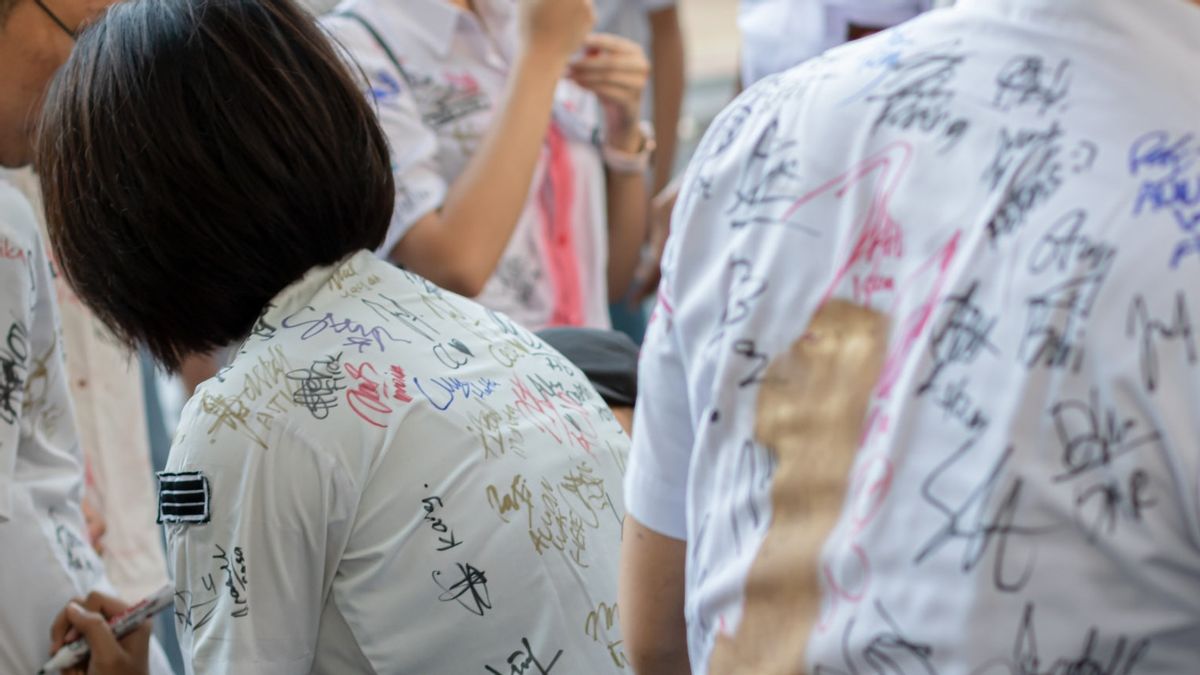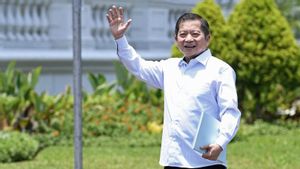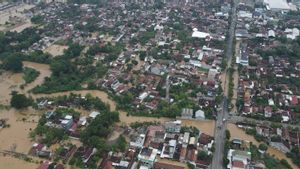JAKARTA - The Speaker of the House of Representatives, Puan Maharani, highlighted the phenomenon of many graduates of Vocational High Schools (SMK) who have not yet received jobs or are unemployed. The government is obliged to bridge with industry players, considering that vocational school graduates are ready to enter the world of work.
"Ironically, vocational graduates are the most unemployed graduates. The government must review the briefing of graduates applied in vocational schools so that they can compete in the world of work and become graduates who are eyed by the company," said Puan, Wednesday, May 24.
The Central Statistics Agency (BPS) recorded that there were 7.99 million unemployed in Indonesia. That number reached 5.83 percent of the working population age at the end of February 2023. Then, for the most unemployment based on the level of education, it is a graduate from SMK.
Unemployment from vocational school graduates was recorded at 9.60 percent as of February 2023. Furthermore, graduates from Final High School (SMA), ranked second with 7.69 percent.
Then unemployment for Diploma I / II / II graduates was recorded at 5.91 percent, and graduates from Diploma IV, S1, S2, S3 as much as 5.52 percent, and graduates from Junior High School (SMP) were recorded at 5.41 percent.
Puan reminded, referring to Presidential Regulation (Perpres) No. 68 of 2022 concerning the Revitalization of Vocational Education and Vocational Training, the regulation should be the legal umbrella for cooperation between schools and industry players.
This Presidential Regulation mandates a paradigm change in the implementation of vocational education and vocational training from supply-oriented to job market-oriented needs.
"The quality improvement of quality human resources (Human Resources) and competitiveness is a long-term government program called Indonesia Gold 2045. We in the DPR will work together to realize this with supervision in the field," explained Puan.
另请阅读:
With this legal umbrella, the former Coordinating Minister for Human Development and Culture encourages the Government to become a bridge in relations between schools and industry players. So, said Puan, these SMK graduates will explore the expertise needed by industry players.
"Preparing graduates who guarantee they are able to practice the knowledge learned is the responsibility of the school, but there needs to be cooperation with industry players to open up opportunities. The government must act as a bridge between the two," explained the first woman to serve as Chairman of the DPR RI.
On the other hand, Puan believes that vocational schools have a curriculum that educates her students to have the skills and skills needed in the world of work.
Mental strengthening also needs to be applied in each education unit, especially vocational schools that create graduates who are ready to work. Competition in the world of work requires a strong mentality in order to compete," said Puan.
In heading to Indonesia Gold 2045, the DPR hopes that the Government will also prepare infrastructure development to support vocational education. Puan said, with skills and expertise that are the focus of education, students can get adequate facilities.
"To hone skills and skills, students must have a complete workshop or laboratory equipped with equipment and machines that are relevant to the field of expertise taught," hoped Bung Karno's grandson.
Furthermore, Puan also highlighted the levy of fees for students when entering the new school year. Whereas the Government should cover all the costs of students who will undergo education in public schools.
Puan emphasized that education is the responsibility of the state according to the constitus of the 1945 Constitution. In addition, article 34 of Law Number 20 of 2003 concerning the National Education System stipulates that the Government and the Regional Government guarantee the implementation of a program must learn at least at the basic level of education without collecting fees.
Meanwhile, in Government Regulations 18/2022, articles 80 and 81 emphasized that the central government and local governments finance education with a budget allocation of 20 percent of the APBN or APBD.
The difficulty of parents when entering the new school year is the existence of levies on students. We in the DPR always supervise the Free School Program, don't let schools charge for other purposes," said Puan.
The first woman to serve as Chairman of the DPR revealed that schools are a provision for the future of Indonesian children. Puan said that the superior generation is a golden generation who is ready in character, morals and science.
"The quality of good education will create Indonesian human resources to advance towards the golden generation and become the spearhead of the country's progress. Do not let Indonesian children have difficulty getting education, because parents have difficulty paying," he said.
"The DPR will ensure that every child in Indonesia gets his right to formal school education by overseeing the realization of free schools for the community in various parts of the region," concluded Puan.
The English, Chinese, Japanese, Arabic, and French versions are automatically generated by the AI. So there may still be inaccuracies in translating, please always see Indonesian as our main language. (system supported by DigitalSiber.id)

















